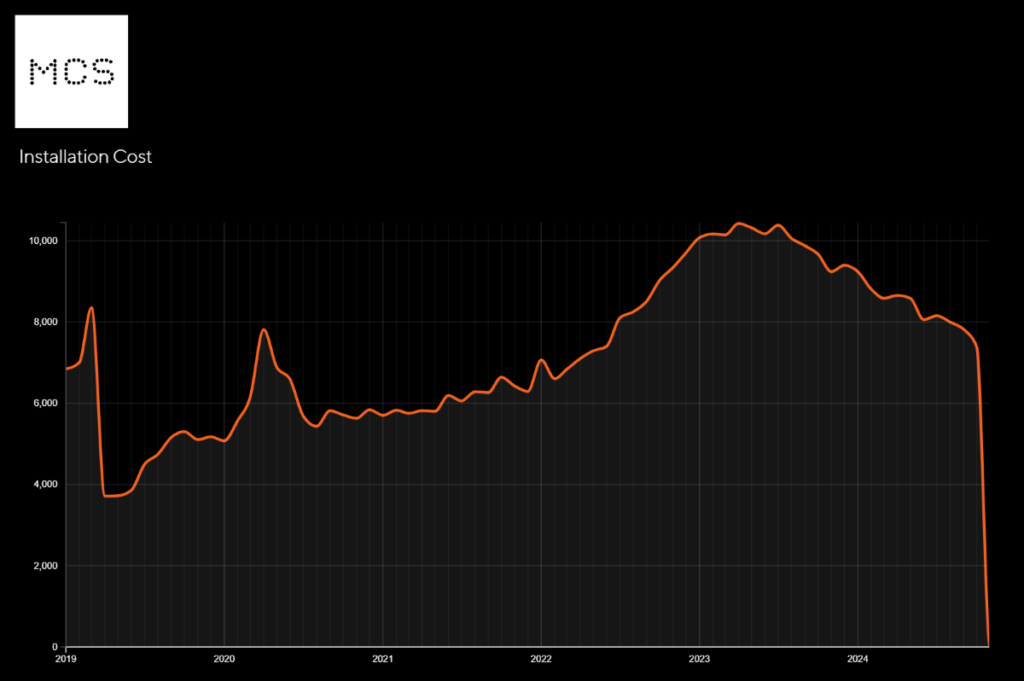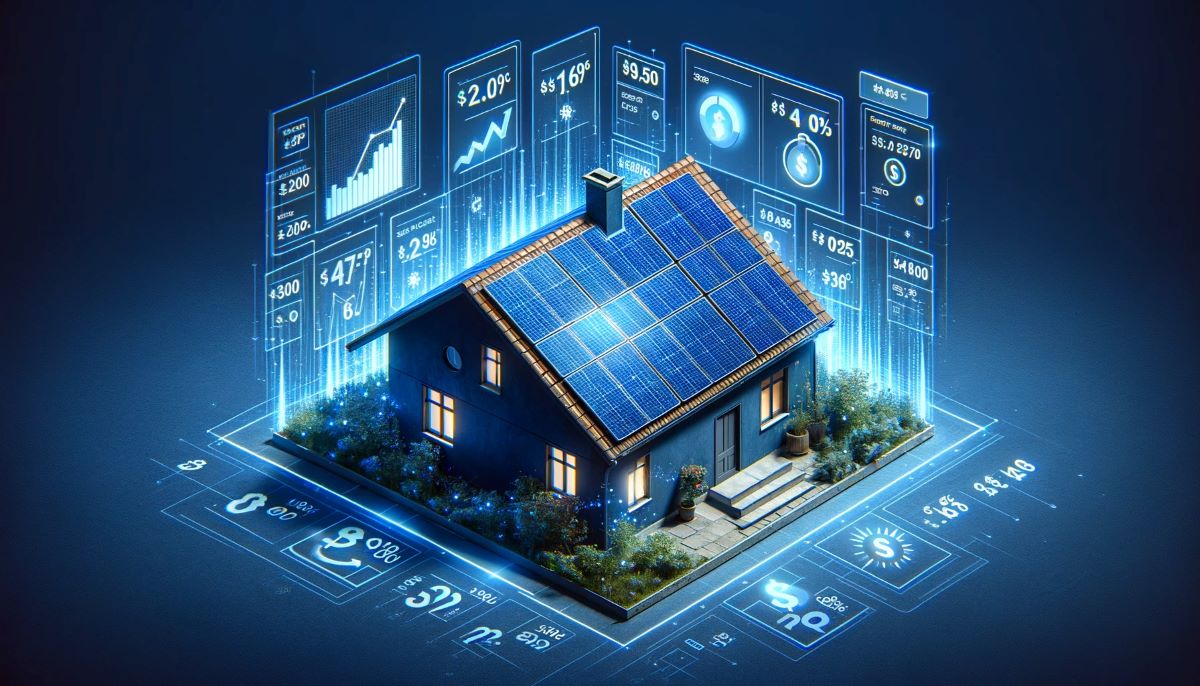The average cost of a solar panel installation in the UK is £7,819, as of September 2024. This is according to the MCS data dashboard. Costs have been dropping since a high point of £10,428 in April 2023.

However, the cost per install varies dramatically. Getting solar panels is really a bespoke construction job, and you won’t know the full costs until an installer can actually look at your property. Hopefully this article can help with your calculations, but if you want accurate costs, the best bet is to get a few quotes.
Cost of solar panels in the UK
The biggest factor affecting price is size of system, which will generally be matched to your household’s energy requirements. According to the MCS, the average cost per kilowatt is £1,671, as of September 2024. That means the average solar installation size is 4.7kW, which equates to just under 11 standard 440W panels.
Some other factors that affect price:
- Type of panels. High performance panels will have better power output, and may last longer, but have more upfront cost.
- Access difficulties to the roof. If you need scaffolding or other machinery you can expect additional costs.
- Solar batteries. Most installations will include a battery system to allow you to store energy produced in daylight and use it at night. The cost and size of these batteries vary.
Costs by size of solar system
| House size | Size of solar panel system | Number of 440W panels | Estimated Cost |
| 1-2 bedroom | 3kW panel system | 7 | £5,013 |
| 2-3 bedroom | 4kW panel system | 9 | £6,684 |
| 3-4 bedroom | 5kW panel system | 11 | £8,355 |
| 4-5 bedroom | 6kW panel system | 14 | £10,026 |
How much money do solar panels save?
Solar panels will save you £300-£700 on your bills each year, according to the Energy Saving Trust. The main factors that affect this are:
- Where you live – sunny areas earn more
- How you use energy – using it during daylight is more efficient
- Your SEG (Smart Export Guarantee) rate – the SEG is a fee made by energy companies for excess energy you generated, and this rate varies
Solar panels typically break even after 15 years. However it could be as little as 12 in a sunny area (e.g. London) with plenty of daylight usage, or as long as 23 years in a cloudier area (e.g. Belfast) with no daytime usage. Solar panels can last at least 25 years, so either way you should earn your money back.
Can you get solar panels on finance?
Yes, and this is a very common way to buy solar panels nowadays. Of course, this is more common with larger installers such as E.ON.
You can read more in our full guide to solar panels on finance.
How do I find a reliable installer?
Like all construction, it can difficult to know in advance whether a solar installer will do a good job for a good price. The best bet is to contact multiple suppliers and compare them. Things to look for:
- Price (although be wary of suspiciously low prices)
- Responsiveness – are they good at replying? Will they turn up?
- Reviews from other customers
- Local vs national installers – you may get a better price from a local installer, but you lose some of the professionalism of a nationwide installer.
- Which panels they offer (there are performance differences between panels)
- MCS accreditation – make sure they’re on this list.
What is the MCS?
MCS stands for Microgeneration Certification Scheme. They’re the standards body who look after low-carbon energy installations, predominantly solar panels and heat pumps.
You should always ensure your solar installer is a member. They’ll give you some protection if anything goes wrong (see more information on their site here).



